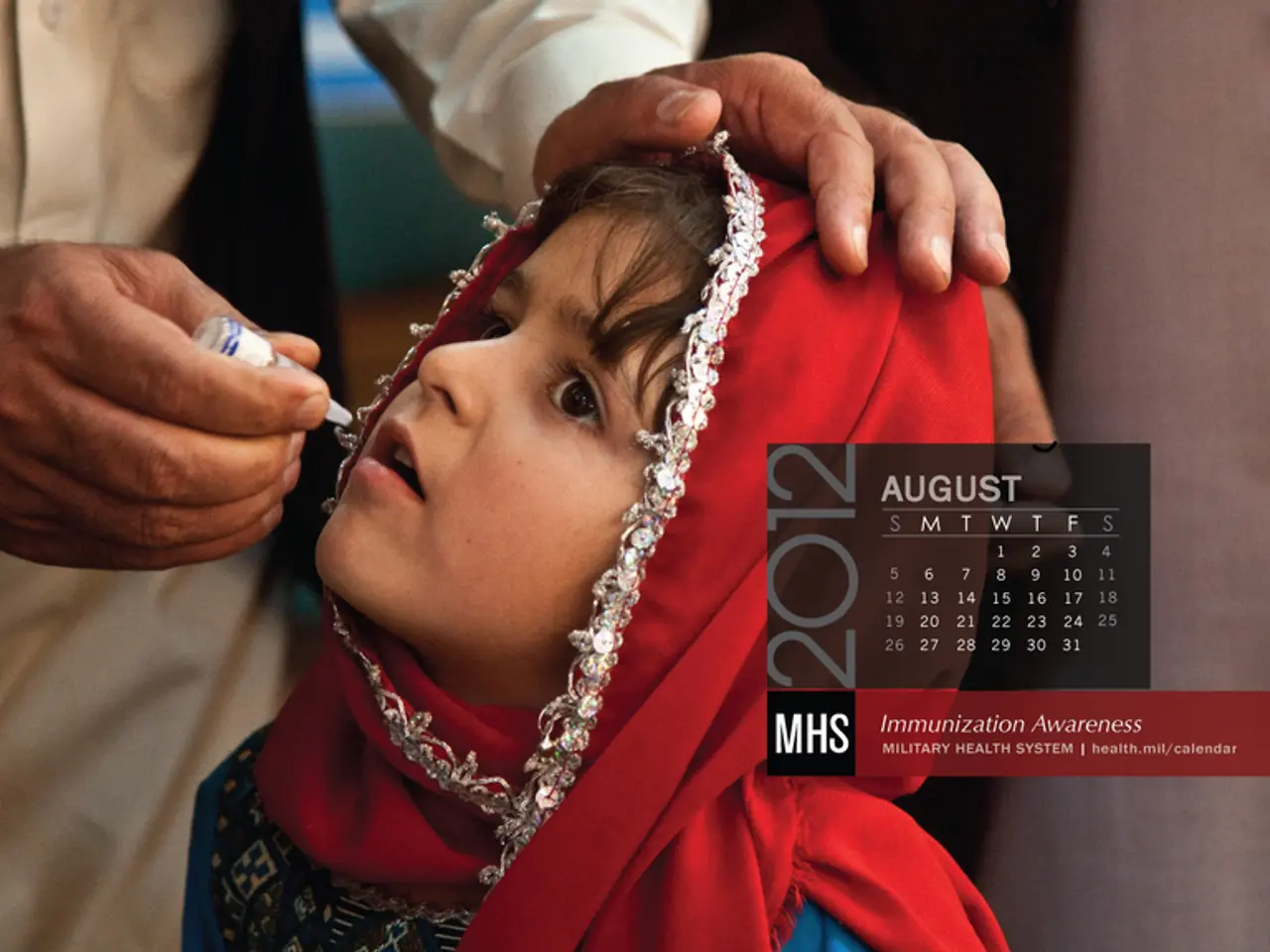Kennedy's consultative body advocates for tightening regulations on MMRV immunizations
In a significant move, the U.S. Health Secretary Robert F. Kennedy Jr.'s vaccine advisory committee has proposed new restrictions on the MMRV vaccine and has put off a vote on hepatitis B shots given to infants on the day they are born.
The MMRV vaccine, which protects against chickenpox, measles, mumps, and rubella, is under review. The panel advised that the MMRV vaccine should not be given before age 4 and that children in this age group should instead receive separate vaccines for MMR and varicella (chickenpox).
The committee's decision comes after some members questioned whether babies born to moms who test positive for hepatitis B are the only ones who truly need a vaccine in the first day of life. The hepatitis B virus can be passed to a baby from an infected mother, and unvaccinated children living with anyone with a chronic hepatitis B infection are at risk.
The hepatitis B vaccine was first licensed in the U.S. in 1981, and following the 2005 recommendation, hepatitis B cases among infants fell from 5,494 cases per year in 2005 to 2,214 cases in 2023. However, the committee is now considering whether some babies can wait a month for those shots.
Discussions on the MMRV vaccine focused largely on rare instances of feverish seizures associated with the first dose. In contrast, the committee's actions regarding hepatitis B could potentially narrow access to the vaccines, as it voted 8-1 to keep MMRV covered for kids as young as 12 months under the Vaccines for Children program.
Dr. Evelyn Griffin, a member of the committee, asked, "Are we asking our babies to solve an adult problem?" in reference to giving virtually all babies the hepatitis B vaccine right after birth. The infant hepatitis B shots are 85% to 95% effective in preventing chronic hepatitis B infections, according to studies.
The committee makes recommendations to the CDC director on how already-approved vaccines should be used. The Advisory Committee on Immunization Practices put off a vote on hepatitis B shots given to infants on the day they are born, and it is expected to decide whether to recommend that some babies can wait a month for those shots on Friday.
As many as 2.4 million people in the U.S. are estimated to have hepatitis B, which can cause serious liver infections, and half are unaware of their infection. The hepatitis B virus can live on surfaces for more than seven days at room temperature, highlighting the importance of vaccination.
The panel's actions and the upcoming decision on hepatitis B vaccinations will undoubtedly impact vaccination programs and the health of infants in the U.S. The committee also plans to take up COVID-19 shots in future discussions.
Read also:
- Enhanced Iron Absorption in Female Health: Biotechnology Developed Plant Protein Outperforms Iron Supplements in Fermentation
- Controversy Surrounding Epstein Heats Up in Washington; Trump Endorses Homelessness Executive Order; More Events Reported
- Prevent the exploitation of our public health care systems for financial gain
- Announced winners of the American Library Association Awards in 2025







